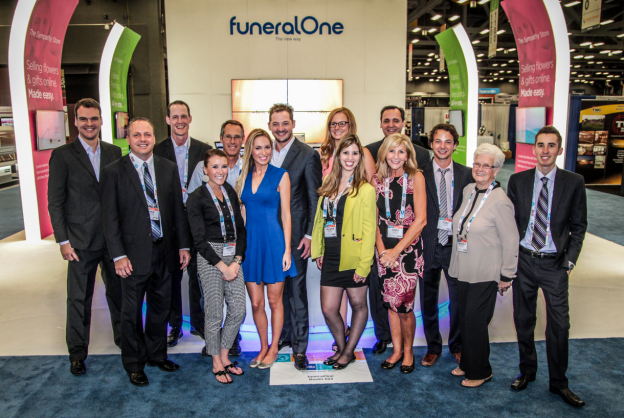Live From NFDA 2014: Stand Out! Differentiate or Disappear
October 12th, 2014This week, the FuneralOne team is down in Nashville, Tennessee for the annual National Funeral Directors Association (NFDA) conference. While many of the leading funeral professionals from around the world will be gathering this week to share the latest and greatest industry happenings, we understand that not everyone could make it to this year’s convention. Luckily for you, we’re live-blogging our favorite sessions at NFDA 2014!

One of our first sessions of the week was about helping your funeral home stand out from the crowd, especially when the business of funerals has been changing so frequently in the last few years. Larry Mersereau, niched as a business growth revivalist, stopped by NFDA 2014 to share some simple, doable and effective strategies and tactics that have helped so many businesses and individuals succeed.
Here are some of the biggest takeaways from his “Stand Out! Differentiate or Disappear” talk at NFDA.
1. Change is unavoidable.
The death rate hasn’t changed all that much in the last 20 years. Therefore, funerals are not a business that can count on the market getting bigger and bigger. Instead, you need to take over a bigger piece of the market that is already there if you expect to grow. The best way to do this is to differentiate yourself from your competitors and change up your market.
And if you are making an effort to be different from your competitors, it will not serve you well to do the things that the rest of your peers are doing. After all, if your customers don’t see a difference and if everything looks the same, your customers will simply resort to choosing services based on price. There’s no reason for them to pay more if another funeral home does the exact same things you do for less money. Not only do customers want a better deal, but they want convenience, better service, faster results, and a single source solution – someone to help them with all of their problems. Therefore, change to give your customers what they want.
2. Try to service a specific market.
Speaking of ways in which you can set yourself apart from your competitors, it’s very advantageous to build a business that serves a specific market. Ask yourself, “Who am I building this business to serve?” The answer could be geographical, or target a specific interest, religion, or type of person. But it’s helpful to think bigger than you would actually want to do. “It’s better to think off the edge then back down, than it is to think conservative and push up,” Mersereau said.
Since NFDA 2014 is taking place in Nashville, Tennessee this year, Mersereau gave an example of a specific market that he may find in this southern music capitol. For instance, what if you had a funeral business that was built for musicians and music lovers? Would there be enough of those people in Nashville to make your business a success? What would your building look like to appeal to those people? What type of unique services would you offer? (Perhaps a live country band to play during the service.) “Price is not an object if you are different enough and there is a market for it,” Mersereau said.
Lastly, once you choose the market that fits your funeral home, ask yourself what makes you different from your competitors. (Hint: If you have a unique enough business, this should answer itself.)
3. Find your competitive position
Once you find your prime prospect, it’s time to uncover your competitive position. According to Mersereau, there are four market positions that every business falls into. (You’re in one, and your competitors are in others.)
One way to determine which market position you fall into is to complete the following positioning statement:
“____PRIME PROSPECT____ know where to go when they want ______PRODUCT/SERVICE_____ that ___IMPACT – RESULTS THEY WANT/NEED___. ___YOUR NAME____, the ____COMPETITIVE POSITION___ delivers by ____WHAT MAKES YOU DIFFERENT____ with/by ___HOW YOU DIFFER___.”
Based on the above points, which market position do you think your funeral home falls into? Do you agree with Larry Mersereau’s points about the need to stand out from the crowd when it comes to funeral service? Be sure to share your thoughts with us in the comments below.
Also stay tuned for more live blogs and updates from NFDA 2014!
You can follow Larry Mersereau on Facebook here.


Leave a Reply